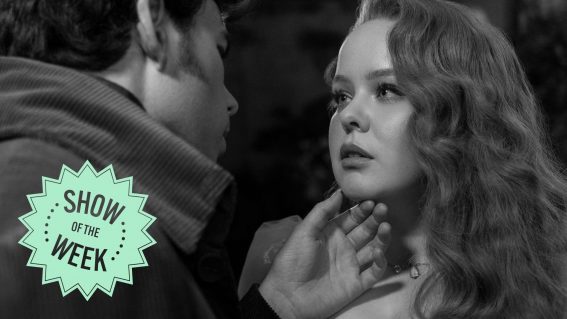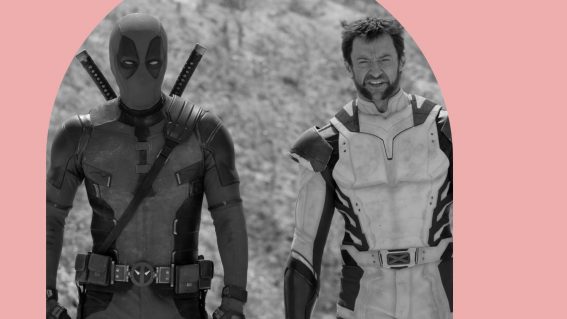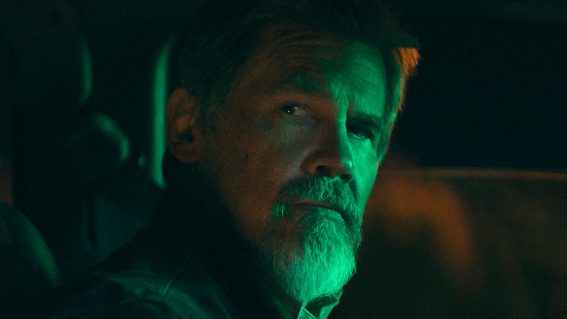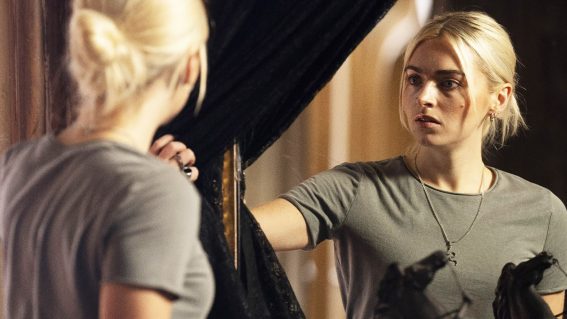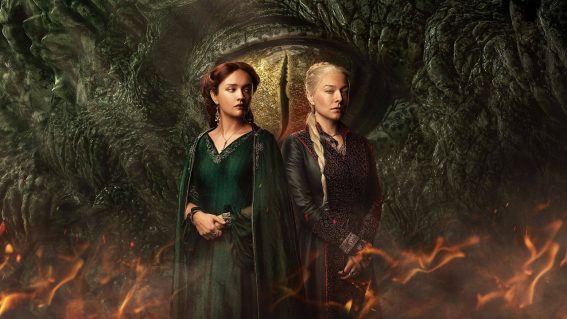The Tattooist of Auschwitz recalls an unlikely love story in a reprehensible place
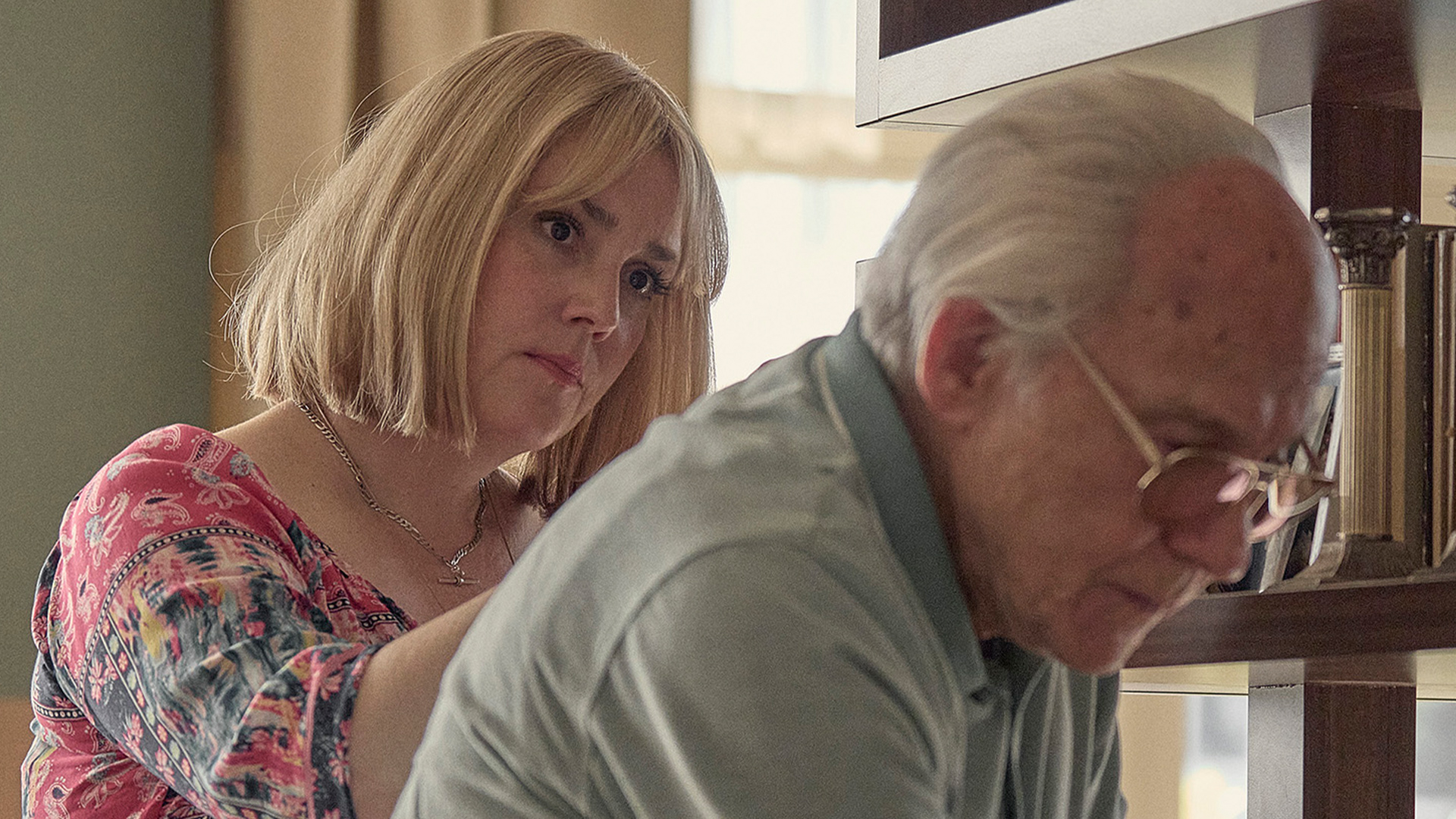
A tale of humanity amid the most inhuman atrocity emerges in The Tattooist of Auschwitz – streaming on Neon now. Steve Newall reports back from some perhaps unexpected dramatic terrain.
“This is a love story,” we are told early in this drama series, based on the bestselling novel by New Zealand author Heather Morris. That wouldn’t be a surprising declaration in many contexts—but given the subject matter of this new series is sitting right there in its title, this is perhaps unexpected terrain for a drama detailing some of the atrocities of the Holocaust.
Part memoir, part historical fiction, Morris’s novel was based on the recollections of Slovakian survivor Lale Sokolov. Morris heard Sokolov share his experiences over months of conversations, recreated here in a framing device with Harvey Keitel as the octogenarian Sokolov and Melanie Lynskey his attentive listener, the then-inexperienced author. What Sokolov shares with Morris is indeed a love story, one that is forged within the concentration camp’s confines, and offers sparks of hope and humanity amid the horror.

When we’re introduced to the young Sokolov (Jonah Hauer-King, Disney’s live-action The Little Mermaid), he’s on a date in 1940s Slovakia, where persecution of Jews is in full swing. Even though rumours were spreading, the Jewish population could scarcely imagine the Nazis’ inhuman acts, and so when Sokolov is sent to a work camp in Poland, it’s with the same sense of powerless compliance as many others. Yes, it’s strange that there’s so little attention being given to collecting luggage from the train, and yes, the camp is grim upon arrival—but there’s nothing early on to suggest the cruel lie inside “arbeit macht frei,” the infamous words etched above Auschwitz’s gates.
The realities of the camp are quick to reveal themselves, as Sokolov’s head is shaved, his arm tattooed with a number, and he’s garbed in prisoner attire. And as his first day in Auschwitz draws to a close, he sees the negligible value of life, according to the Nazis—three prisoners are shot dead that evening, solely for shits and giggles. Soon Sokolov himself is working as Tätowierer, inking numbers into the arms of new arrivals, a role that offers some extra privileges (and perhaps some illusory sense of security).
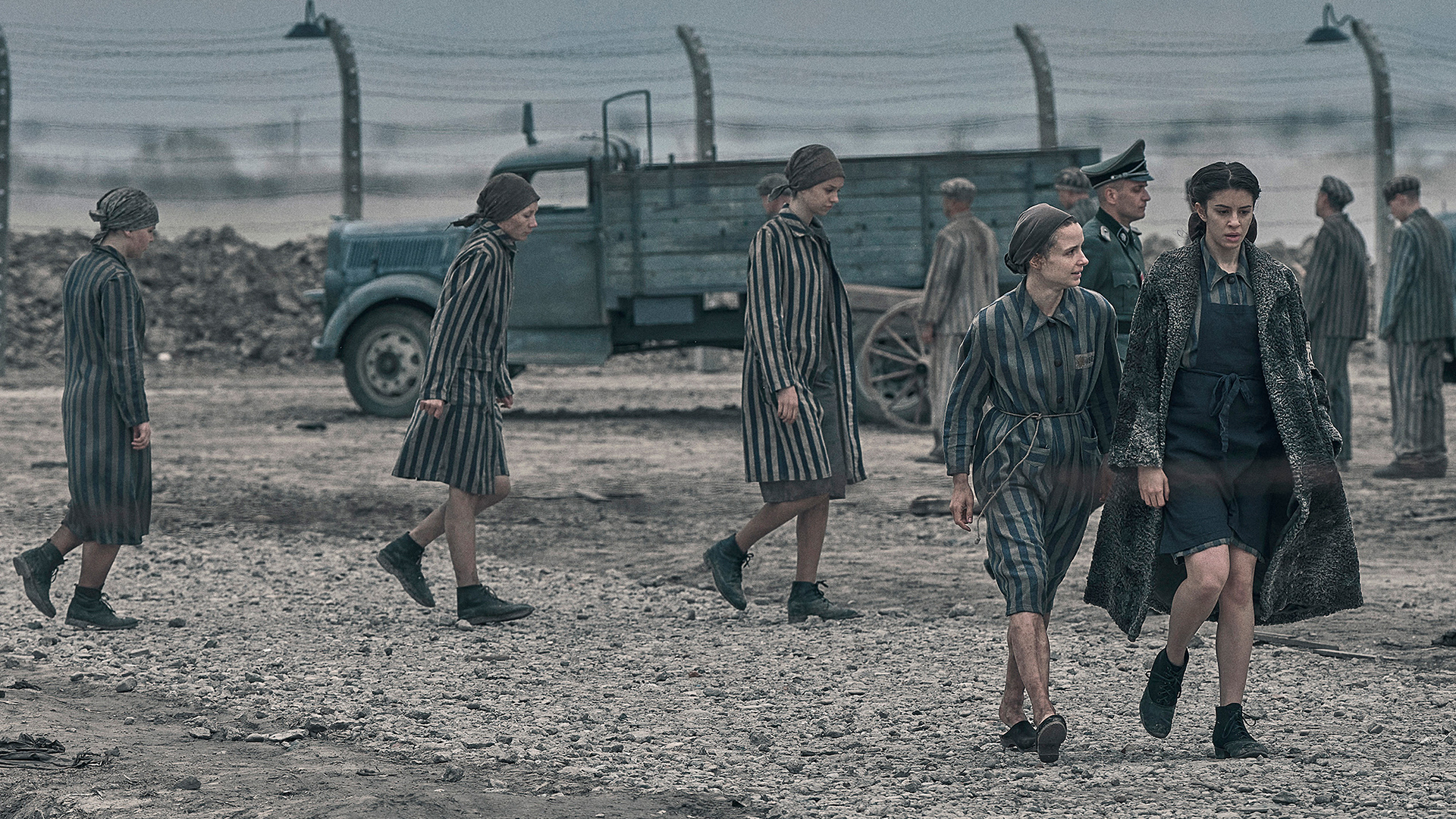
Among the many Jews arriving at the camp for extermination is a young woman with whom Sokolov shares an instant connection. After applying the Nazis’ obscene numerals to the arm of Gita (Anna Próchniak), Sokolov tries to track her down within the camp, and they pair begin a clandestine, fragmented relationship of stolen minutes and seconds. This is the love story that we’ve been alerted to, and it goes on to endure for decades. We know Lale Sokolov will survive (he’s telling his story to Morris, after all) and he shares with Morris that Gita went on to become his wife, before passing away in her 70s.
The Tattooist of Auschwitz depicts the inherent danger of their relationship, but given that we already know the couple built a post-WWII life together, uncertainty about how the show will unfold is more about how events will happen than what will happen. How their love could foster a sense of purpose, for instance—or how fear for one’s loved one can lead to agonising moral choices (Sokolov at one point ushers a group of women to a grim fate in exchange for vital assistance in saving a severely ill Gita).
The moral quandaries that stemmed from surviving in these circumstances seem to still plague the elderly Sokolov in his 80s. So too, do the memories of individuals within the camp. Many faces, mostly Jewish prisoners, stare down the barrel of the camera, confronting Sokolov from the past. Some, like the SS officer with whom Sokolov strikes up an unlikely and uneasy mutually beneficial relationship, query his version of events at times—and sometimes we even see a scene restaged to accommodate a change in perspective. These storytelling choices, along with the more contemporary scenes staged between subject and author, continually reaffirm that what we see on screen is Sokolov’s recollection, his personal story (well, as retold by Morris at any rate).
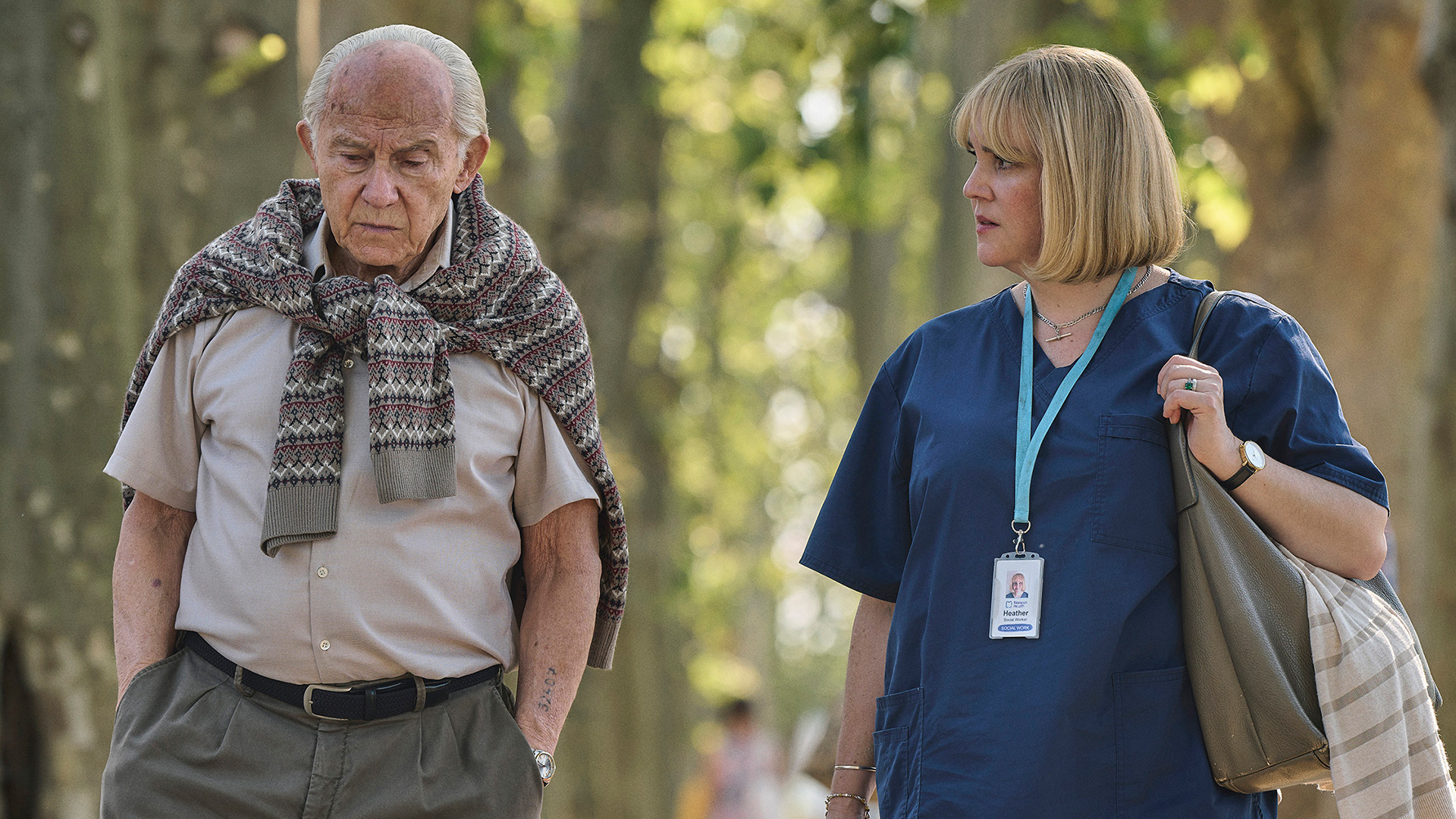
It’s in contrast with Jonathan Glazer’s decision in recent Oscar-winner, the superb The Zone of Interest, to never take us across the wall of Auschwitz. Unrelentingly chilling, this worked to the film’s advantage, kept the focus on the psychology of perpetrators, and allowed us to make comparisons to other dehumanising or genocidal present-day regimes. Murdered millions haunt Glazer’s film from beyond walled gardens and across landscapes, but here they feel like they are making eye contact. Even though they are actors, there’s a sense these characters are wanting to be seen as individuals by us in the present.
The Tattooist of Auschwitz could never completely convey the horrors its characters experienced, but is able through its approach to offer a more personal story of survival amid the same barely comprehensible evil as Glazer. But what we find here is a different suite of emotions and conclusions from the same reprehensible locations—a perverted, evil use of the Polish countryside stemming from the most vile recesses of the human psyche.


